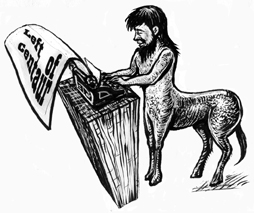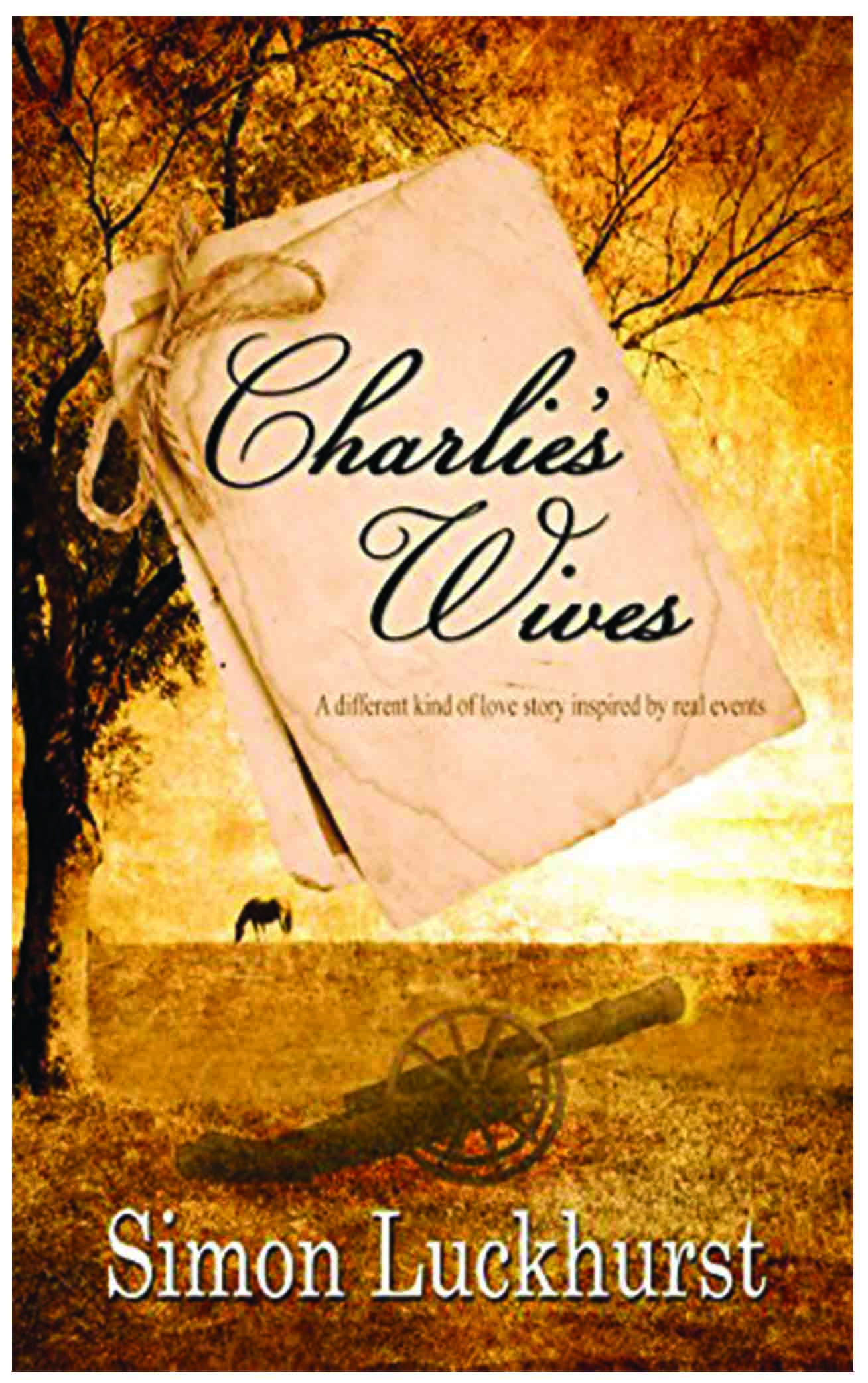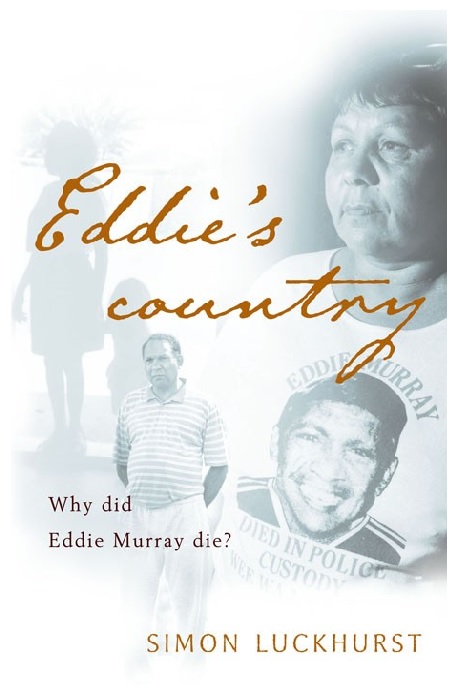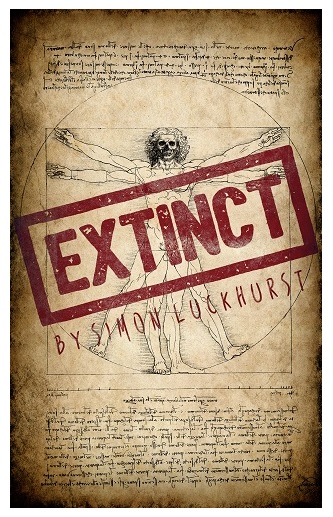 |
It was a strange land to them, with a strange sunlight...Harry Davidson works in a factory. He is also writing a screenplay, although, as he concedes, most of the population of Sydney is doing the same. Things start to change one evening for Harry after the power fails at his work. With a metaphorical minotaur of discontent at his feet, he realises that something is missing from his life and comes to believe things are about to change. When he meets his friend, Pete, the following morning, it seems as if Harry’s suspicions are correct, as Pete has decided to become a Red Indian. Coupled with Pete’s conversion is the unexpected return from Queensland of Harry’s sister, Gabriel. She is a dedicated Goth who has brought Karl home with her. He is a jump at the thought of a whale-rescue attempt, touchy-feely, entire wardrobe of political slogan T-shirts sort of extended stay German tourist. After Pete is institutionalized, Harry and his writing partner, Catherine, have a stroke of luck when Catherine works with Alison, a producer/ director who becomes interested in Harry’s script. Life becomes more interesting for Harry. His film goes into pre-production. Not only does Pete come out of the mental hospital uncured, but he has somehow managed to acquire another Indian as a companion. Harry’s love life picks up when he starts seeing Kim (a prostitute he has a relationship with but doesn’t sleep with) and Cassandra (a one-armed actress who he doesn’t have a relationship with but sleeps with a lot.) Harry is soon attempting to deal with Cassandra’s blind daughter, his friend Joel who has been a coma for a year, his aeroplane-modelling obsessed older brother and his silent wife, and Gabriel’s inability to choose Karl or her former boyfriend Charles as the father of her soon-to-be-born son. As if this is not enough, there’s also the impending destruction of the Philosopher’s Café, (owned by Harry’s family’s longtime friend, Wendy). Eventually a whole Indian tribe moves into Harry’s backyard just as he is kicked off the set of his film by Alison and the Man in the Dark Suit. When the bulldozers move towards the café, Harry and his friends move in. And all the time Harry’s minotaur nags for attention. |
Awards
Strange Sunlight was short-listed in the HarperCollins Fiction Prize, 1996 and long listed in the Angus and Robertson/ National Book Council Prize, 1994.
Comments
"There's no doubt you do have talent as a writer, and there are some deft comic touches in the novel..." Linda Funnell, Managing Editor, Pan/Picador, December 1995.
If you would like to read the full manuscript of Strange Sunlight with a view to publication, please email me at simon@simonluckhurst.com.
Extract
‘What happened to you?’ Harry asked.
‘I listened to what the clouds told me,’ Pete told him. ‘People were making no sense, so I listened to the messages coming from the sky.’
‘What sort of messages?’ Harry asked.
‘They are hard to translate.’
‘And why you?’
Harry wondered whether this question was nearly as important as the previous one.
‘You hear if you are called,’ answered Pete.
‘Your sister’s serious,’ Harry warned. ‘She’s calling a doctor. Are you sure you want that?’
Pete didn’t pause before replying.
‘Indians have been persecuted for a long time. It will not end now. I am ready for them.’
Harry decided to try a different tack.
‘How was your buffalo hunt the other day? Bag a few, did you?’
‘Thank-you, yes.’
No joy there, thought Harry, but he persisted with the line of questioning because not many other conversational openings were arising.
‘What size were the buffalo?’ Harry asked.
‘You know how big a buffalo is,’ Pete replied instantly. ‘Do you think Indians are stupid? We know buffalo. We know buffalo better than you pale-faces. We use all the buffalo. Every part. We do not merely skin the carcass and leave it to rot. We give thanks for the buffalo. We do not ask each other stupid questions about them.’
‘Point taken,’ Harry said. ‘Listen,’ he continued, ‘I’m just worried about you. If a member of your tribe came up to you and said they’d become, say, Chinese, you’d be concerned, wouldn’t you?’
‘I see what you mean,’ the Indian formerly known as Pete told Harry. ‘Don’t worry, I’m more fine than I’ve ever been. Maybe one day you will understand.’
The warm day seemed abruptly cool.
‘If you’re an Indian, where’s your tribe?’ Harry wondered.
This time there was a slight hesitation before Pete replied.
‘My tribe is all around me,’ he assured his friend.
There was no-one else there, and Harry turned to leave.
‘Not in this yard, but on the streets,’ Pete told him. ‘In their houses. At their desks. In their offices and driving their cars. Perhaps they don’t know yet of their Indian-ness, but they’ll find it soon enough.’
‘And you will be the chief?’ asked Harry.
Pete laughed, and for a second Harry caught a glimpse of his friend who had gone.
‘Sadly, yes, I will lead my people,’ Pete told him. ‘I know some medicine, what you folk call law, but not enough. I will have to settle for chief, I think.’
‘Take care,’ Harry said, and turned and left. Behind him he heard Pete, the Indian Chief, playing a gentle rhythm on a drum made from some kind of stiffened hide.


